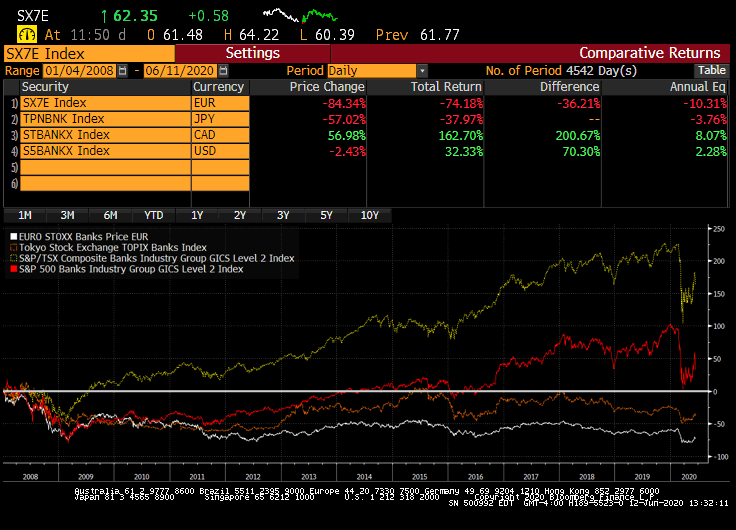Jun 12, 2020
Larry Berman: The trouble with central bank forward guidance and yield curve control
By Larry Berman
Larry Berman: The trouble with central bank forward guidance and yield curve control
It’s not real. The market has no true price discovery. We really don’t know what things would be worth if the central banks were not printing money.
Federal Reserve chairman Jerome Powell said this week that the Federal Open Market Committee expects to keep rates near zero for a few more years (or longer). He also discussed yield curve control. I wrote about this a few months ago here.
I’ve been concerned about this for years. Using low rates to stimulate investment has many issues. One of the biggest is the negative impact on retirement accounts and pension funds. That vast majority of pension funds in the world are grossly underfunded. The safe retirement income from bonds is almost non-existent. It forces impairs a safe “sleep-at-night” retirement income.
The idea behind keeping rates low to stimulate demand is flawed. It’s not wrong, but it’s flawed — seriously flawed. It has caused a gross misallocation of capital. There are too many companies today that only work because rates are being artificially held low. There are no longer any free markets and price discovery. The Fed owns just about everything related to debt markets or say they will. The fact that markets cannot function without that unprecedented support is not a plus. It’s not a signal that the economy was fine before COVID-19.
Yeah, I know… Stop fighting the Fed, Larry.
The next biggest impact of a flat yield curve is that low rates hit the banking system the hardest. Net interest margins are the profitability of the banking system. Banks borrow short-term and lend longer-term and their profit is directly linked to the steepness of the yield curve. While it’s true that in Canada, our banks are (or have been) better managed than in the United States, the low-rate environment and flat curve is now here.
The Bank of Canada is printing money, too. Japan’s central bank was the first to do so, then Europe, then the U.S. and now Canada. This all points towards where the trends are heading.
Have a look at the returns from the banks in Japan, Europe, the U.S. and Canada:

The “indirect” financing of government largesse by the central banks of the world is a huge problem. A flat yield curve and the practice of forcing rates down so that we can issue more debt is not structurally bullish.
I really hate being a bear on this topic. I do. I like to be optimistic, in general. But any way you slice it, we are heading for a day of reckoning. We can’t get out of this cycle of low rates and if we see a political shift even more to the left in an effort to address the gross inequality of many policies, we will be faced with a major cycle of stagflation. You cannot have a healthy economy without a healthy banking system. In most places in the world, the banking system is fragile.
The worst economic shock to the world, perhaps ever, will simply not end in a “V” despite all the largesse and money printing.
Follow Larry online:
Twitter: @LarryBermanETF
LinkedIn Group: ETF Capital Management
Facebook: ETF Capital Management
Web: www.etfcm.com









